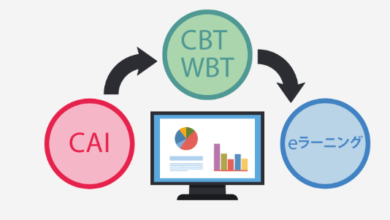4 Podcast Uses to Develop Communication Skills

The podcast is a very effective educational resource in online courses. The ease with which the audio can be downloaded and listened to as many times as the student needs is a very advantageous benefit in the learning process.
One of the basic skills that education is currently interested in is the development of communication skills. Today, we know that developing them improves our daily relationships and even our perception of the world.
This implies, as a consequence, human beings who know how to identify and express their needs, problems and doubts more clearly and directly. This greatly contributes to avoiding confusion and misunderstandings in the different spaces in which we interact.
The podcast also allows your students to develop their communication skills. These are some uses in which you can implement this resource to achieve this goal:
Use #1: Develop active listening
This is the first and necessary step in communication skills. Before speaking and expressing our ideas, we must be able to listen and interpret what is being said to us in the “message”.
In this process, the exchange of messages faces a series of barriers. Therefore, when the student listens to a podcast, which is accompanied by a work guide or note-taking, he is forced to focus on what he hears and avoid the stimuli of the environment or even his own thoughts.
In this process, the student learns to interpret not only words, but also silences, pauses, and the meaning of intonation. All this allows you to subsequently analyze the received information, selecting the relevant data, from what is not necessary.
Use #2: Build Feedback
This process contributes to establishing effective communications, based on active listening, feedback allows clarifying imprecise ideas, poorly expressed or issues that have not been fully understood.
When students listen to a podcast, you can later ask them questions about the information exposed and that they did not understand. To do this, you can ask them to formulate their questions, this reinforces the organization of ideas and the identification of the message to be transmitted.
In this process you can also ask them to summarize what they have understood, in their own words, and then share it with the teacher or with the whole class.
If the podcast has several chapters, you can assign one to each student and then share their summaries among them, in this way, you will motivate them to commit to a good analysis of the information to be transmitted: key ideas and basic concepts.
Use #3: Develop negotiation and persuasion
Negotiation and persuasion are two essential factors in communication, since it is thanks to them that we are able to reach agreements, find common ground or make progress on a sensitive or complicated issue.
These skills are necessary for every human being, however, not all of us manage to develop them effectively. Based on the information covered in the podcast, you can organize a debate or forum where the students from their point of view “for” or “against” persuade a general public to support their opinion.
For this, empathy with the public they are trying to persuade is necessary. Negotiation is another factor where several groups, based on different central ideas, establish agreements so that one or two central ideas are established as “the most relevant” of the podcast. To do this, students explain the reasons why this idea properly “summarizes” the information.
Use #4: Build Trust
Self-confidence is a very important factor in communication, it is what allows us to express our opinions and defend them when someone does not agree with our point of view. In addition to listening openly to other people, without an attitude of rejection or denial of their opinion, which strengthens empathy.
To do this, based on the content presented in the podcast, you can ask your students to share their opinion on the topic. They can rely on their experiences, reflections or real life situations, which allows them to get in touch with their emotions.
This strengthens them in identifying “how they feel” about a topic, this connection with oneself is necessary when we seek to establish communication with others. It is what allows us to share our ideas and thoughts, even when we are sad, upset or hesitant about a situation, for which a reflection of our state is necessary so that we use the appropriate words, knowing how to convey the message.



